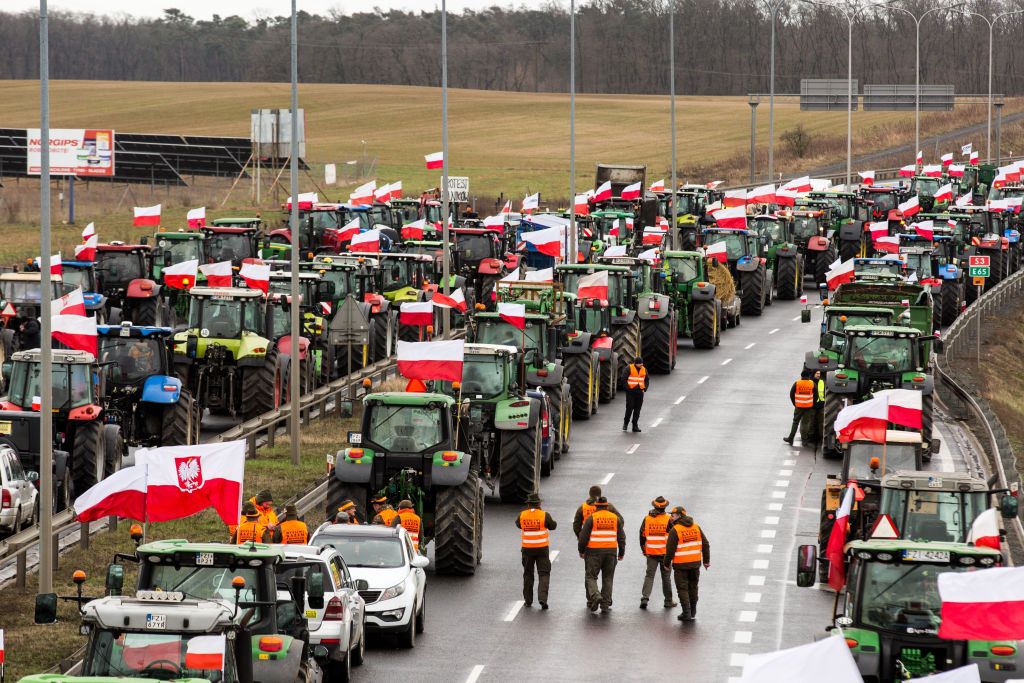Tusk meets Polish farmers, no agreement on ending border protests reached

Polish Prime Minister Donald Tusk failed to reach an agreement with Polish farmers to end protests against Ukrainian agricultural imports during a meeting on March 9, Polskie Radio reported.
Polish farmers have been holding protests across Poland and at the border with Ukraine in opposition to Ukrainian agricultural imports and the EU's Green Deal for a month.
Following the meeting with farmers, which reportedly lasted three hours, Tusk said that Warsaw would not close the border with Ukraine.
In late February, Tusk said that Warsaw had led talks with Kyiv on the possibility of temporarily closing the border for the trade of goods. Ukraine's deputy economy minister who takes part in talks with Poland on the border blockade and trade disputes, Taras Kachka, denied that.
According to the farmers, Tusk criticized Polish officials responsible for agriculture and did not rule out that some of them might be dismissed, Polskie Radio reported.
Polish Agriculture Deputy Minister Michal Kolodziejczak also met with farmers and presented "concrete proposals" to them, including financial assistance and concessions in EU policy.
Nevertheless, Tomasz Obrzanski, head of the independent self-governing trade union of individual farmers "Solidarity," announced that another big protest across Poland would take place on March 20.
The Polish government has repeatedly said it understands the concerns of its agricultural producers and pointed out the supposed negative impacts of the EU's decision to continue a free trade regime with Ukraine, originally instituted in 2022.
According to Warsaw, the influx of cheaper Ukrainian products threatens the domestic production and livelihoods of Polish farmers, which Kyiv denies. Poland has already instituted a ban on several Ukrainian products, such as grain.
Ukraine's Prime Minister Denys Shmyhal said at a press conference on March 4 that the border blockade and ongoing trade disputes with Poland have a higher economic cost to Warsaw than Kyiv.
Only 5% of Ukrainian agricultural exports are transported by road, with 90% being shipped out via maritime routes, he said.















